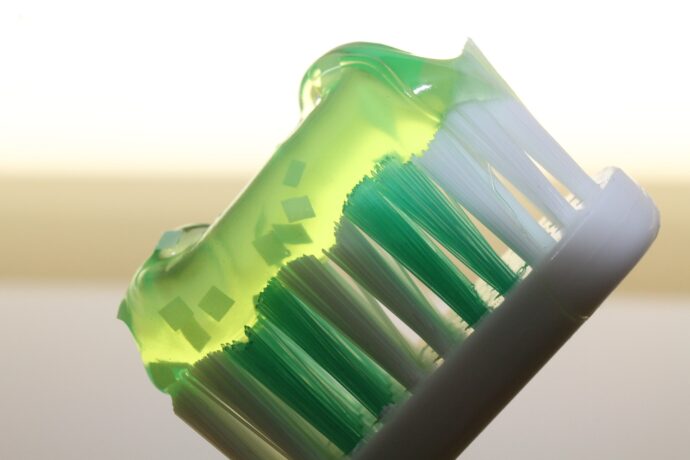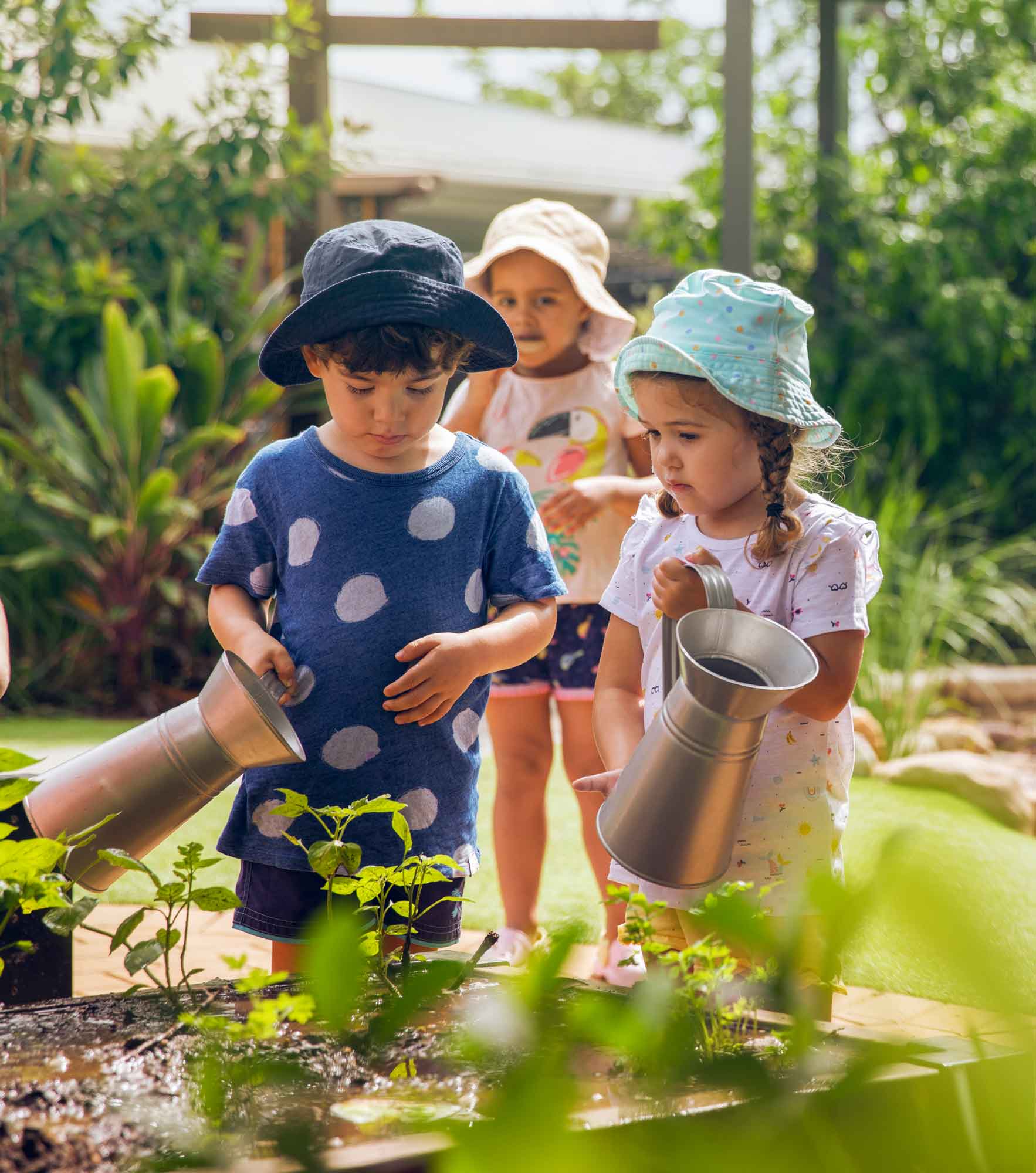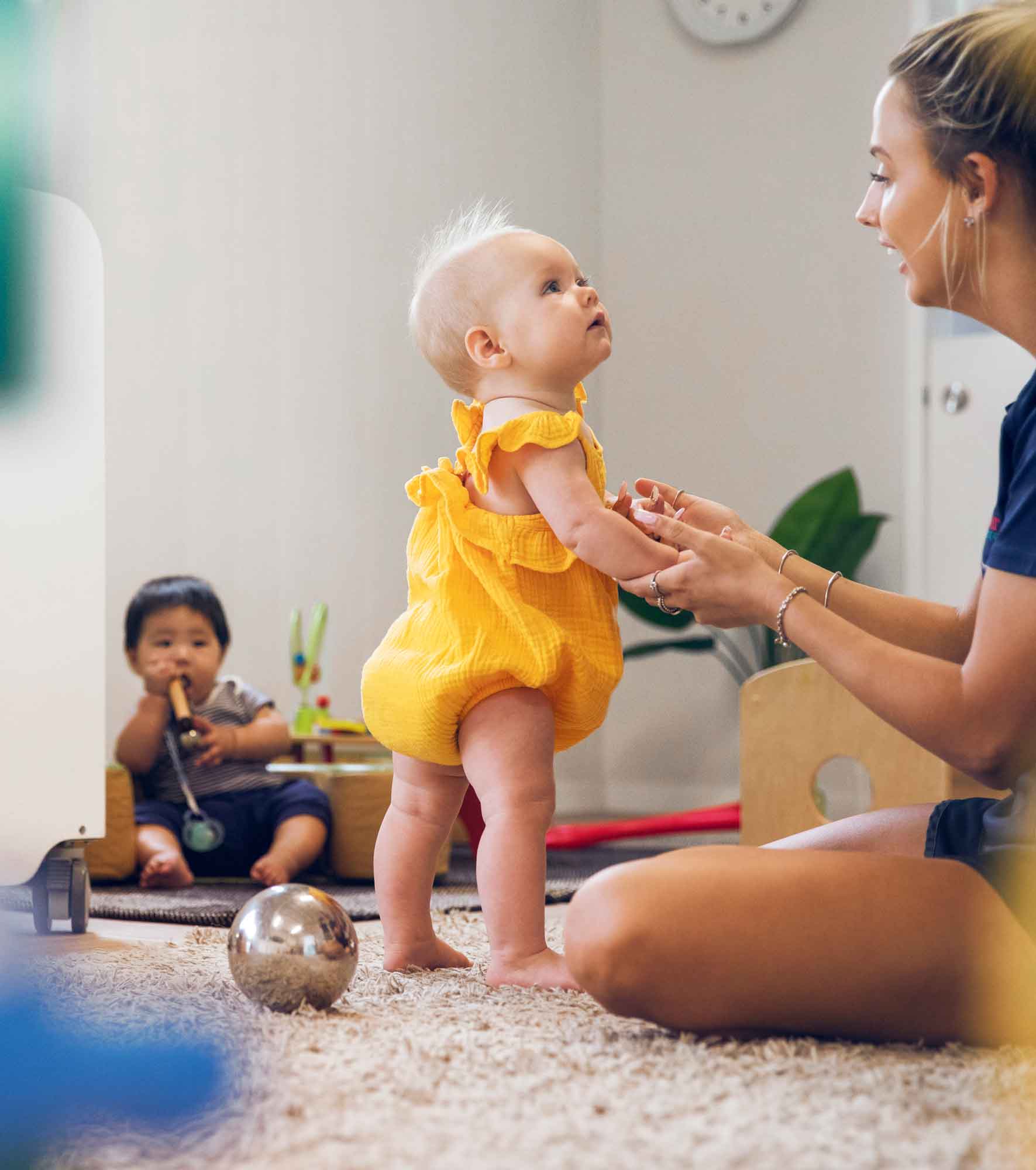Journey’s Expert Interview with Dental2You
“Open your mouth like a dinosaur.”
Dental2You visits 600 daycare facilities and schools, most of them twice per year, as the Australian Dental Association and Queensland Health recommended. In today’s edition of our expert interviews, Journey talks to Larissa, General Manager and responsible for client liaison and Mary, Senior Operations Manager at Dental2You, about children’s oral health, their approach to why “early practice” is key, what parents can and should do and what to think about the new half-round silicone toothbrushes for kids which brushes all teeth at once.
Dental2You offers preventative oral hygiene to children once they get their first teeth. At this age, only a short check is usually possible. From about 18 months to 2 years, the little patients are already much more understanding. That is a good thing.
After all, the government only changed the child dental benefits schedule regulations at the beginning of the year. If the combined family income is below $99,000, the family is entitled to $1026 every two years for general dentistry per child between the ages of two and 17, including prophylaxis. But even for families who do not fall under this regulation, the service of Dental2You is affordable. Whereas it would typically cost $85 to see a dentist, Dental2You’s services at the local facilities is only $69.
The aim behind the government’s commitment is to encourage the examination, the cleaning and the calcium applications twice a year for every child to actually prevent things from going wrong.
And anyway, the assumption that milk teeth are not so important because they do not stay is a misconception. The permanent teeth need a healthy environment to stay healthy. And in addition: Anyone who has ever had a toothache knows they would rather spare their children.
“There is a need for this service because children should not be suffering in pain because of their dental,” says Mary emphatically. You can tell that Mary and Larissa care deeply about this issue.
It’s not just a job – it’s a vocation.
Their mission is to bring a bright smile to the Australia of the future. COVID has shown them the importance of their regular service. “We didn’t go to centres for like a year and a half. And there were children we saw back in 2019 where problems occurred over that time. “Continuous dummy- or thumb-sucking, for example. All these habits didn’t stop. So, by the time these children are now 3,5 years old, they’ve got an anterior open bite, and it looks like they’ll need braces. But we try, and hopefully, we can prevent that.”
Significant improvements are possible
In many cases, Dental2You can see significant improvements in their patient records when they identify problems and work closely with parents. However, the timeframe for these interventions is small. “Once the children are four years old, calcium will set into the jaw, becomes rigid, and we can’t change anything anymore. But up until then, we can. And the wonderful thing is that we see these results ourselves because we document every visit. We see the difference in children.”
Journey wants to know whether it takes a special kind of person to offer this service successfully: “You need to have a passion for children and understand their needs. And you need to be a great communicator and a good briber.” Larissa laughs. “Stickers a good for bribery.”
Visiting the centres
Beyond stickers, Dental2You staff put a lot of emphasis on the whole setting. They usually visit the institution two weeks in advance and explain oral hygiene and how to check teeth using puppets and spreading a lot of fun. Ideally, teachers and educators then use the interim period to integrate these topics into the playful learning process. When it comes to the next visit, the children are already prepared and much more relaxed.
The fact that everything takes place in their familiar surroundings, in their second home, also contributes to the relaxation. There is a table with all the utensils, two swivel chairs for the doctor and assistant and, of course, the treatment chair. Those who are reluctant are not forced and are allowed to watch. Maybe this child will need until the next visit to be ready. But it is better to wait, according to Mary and Larissa, than to force them and cause a lifelong aversion to the dentist. It’s a matter of weighing things up. Both of them have experienced in their childhood what it is like to be at the mercy of the dentist. This feeling they want to avoid under all circumstances for their little customers. Therefore, it is perhaps better that the parents are not there. Because sometimes their own reservations get in the way, and then they can’t be as helpful as they want to be to their children.
We need to spend more time with the children educating.
What Mary and Larissa and the others in the team see and hear during their checks reflects the entire spectrum imaginable: From exemplary well-groomed children’s teeth to others where the front teeth look great, but the back teeth have been neglected because they are harder to reach and clean, from plaque that would be easy to remove with a toothbrush to caries and gingivitis, the latter a typical issue in adults but lately increasingly common in children.
Or even worse: abscesses. “I went to a school last month where every second child had an abscess. I am serious. I can show you the photos. And you know, these children have just been made to live with the pain. They shouldn’t have to—this kind of problems we see now, especially in low demographic areas. We need to spend more time with the children educating. Some children we see don’t even own a toothbrush.” Mary says, and Larissa nods approvingly: “We’re living in Australia. We shouldn’t be in this position. So yes, we believe that’s why our service is important. Because we get to those children too, that the system will never get to.”
Tips for Parents
No more dummies when the children are older than 2.5 years.
Brushing their teeth at least twice a day for 2 minutes. There would be no excuses
It is necessary that the parents accompany this up to the age of about seven to eight. Especially around the time of starting school, children are usually a bit laxer.
In general, one should not forget the gums.
The use of dental floss can be introduced from the age of 4.
Toothpaste does not need to contain fluoride until about six years of age
The new half-round toothbrushes that clean all teeth simultaneously (analogue and electric) are good. Children could handle this very well, especially the back teeth, which are otherwise more challenging to reach would benefit and the gums would be massaged at the same time.
No coke in baby bottles, yes, they would see that too, and fruit juices are not necessarily the ideal drink either. But they don’t condemn any food in general and are also lenient towards those with a sweet tooth. They would explain it to the children by saying that there are foods that make teeth happy and others less so. If you can’t brush your teeth after the latter, rinsing with water is good. It’s simple and beneficial.
What if the children don’t feel like brushing their teeth or if it turns halfway into a fight? “As much as has changed in treating children’s teeth, new techniques can be used here as well. Teeth cleaning songs on YouTube, apps…” says Larissa.
It is the parent’s job to make tooth brushing fun.
And then the children would also get involved.
Ultimately, we ask them how they rate their cooperation with Journey. “I went to one of the Journey Centres the other day to pick up the consent forms, and they’re so happy that we’re coming there next week, you know. We are all on the same page there. That’s a good feeling. The Centre Manager and Educators are excited and well-prepared when we come. And I experience that the children at Journey give each other courage.
One thing that Journey does so well is that they’ve got this beautiful atmosphere that the children are educated in. That makes a big difference,” says Mary and adds, “And the food always smells so good when you come in too”. We couldn’t agree more. And thanks to Dental2You, our children know how to brush their teeth afterwards.
Journey would like to thank Larissa, General Manager at Dental2You and Mary, Senior Operations Manager at Dental2You, for taking the time to talk to us.
We look forward to welcoming Dental2You back soon in:
Journey Early Learning Riverhills
Journey Early Learning Corinda
Your Journey Early Learning Centre is not included?
Just ask your Journey Early Learning Centre for their oral hygiene provider.
Links:
Brushing teeth with the Wiggles
Brush Up: The Toothbrush Training Game (brushupgame.com)


